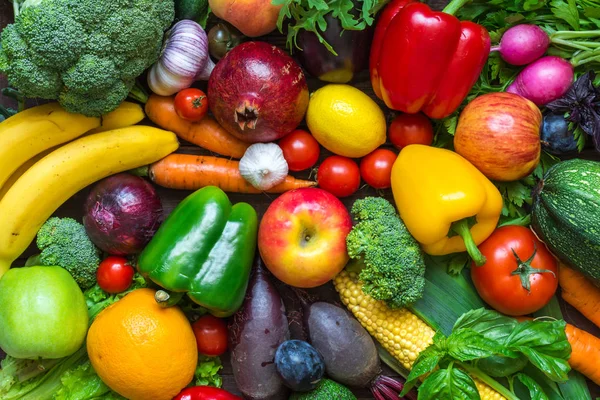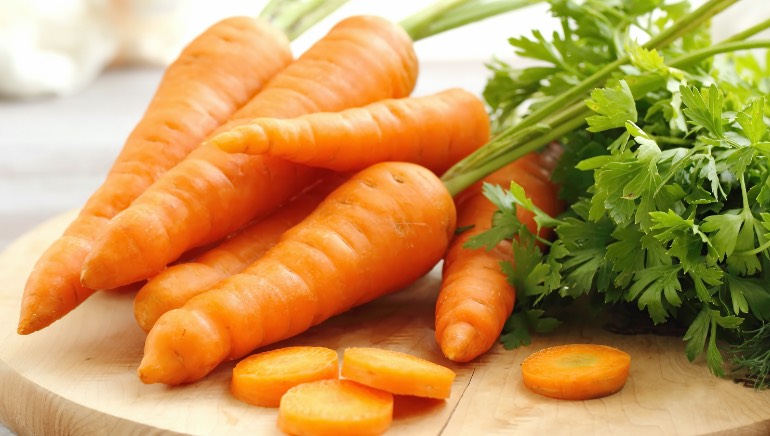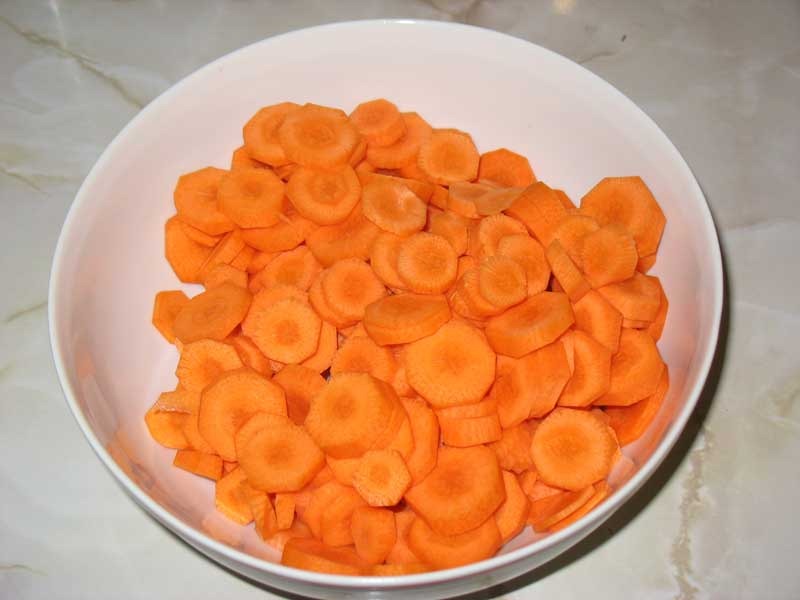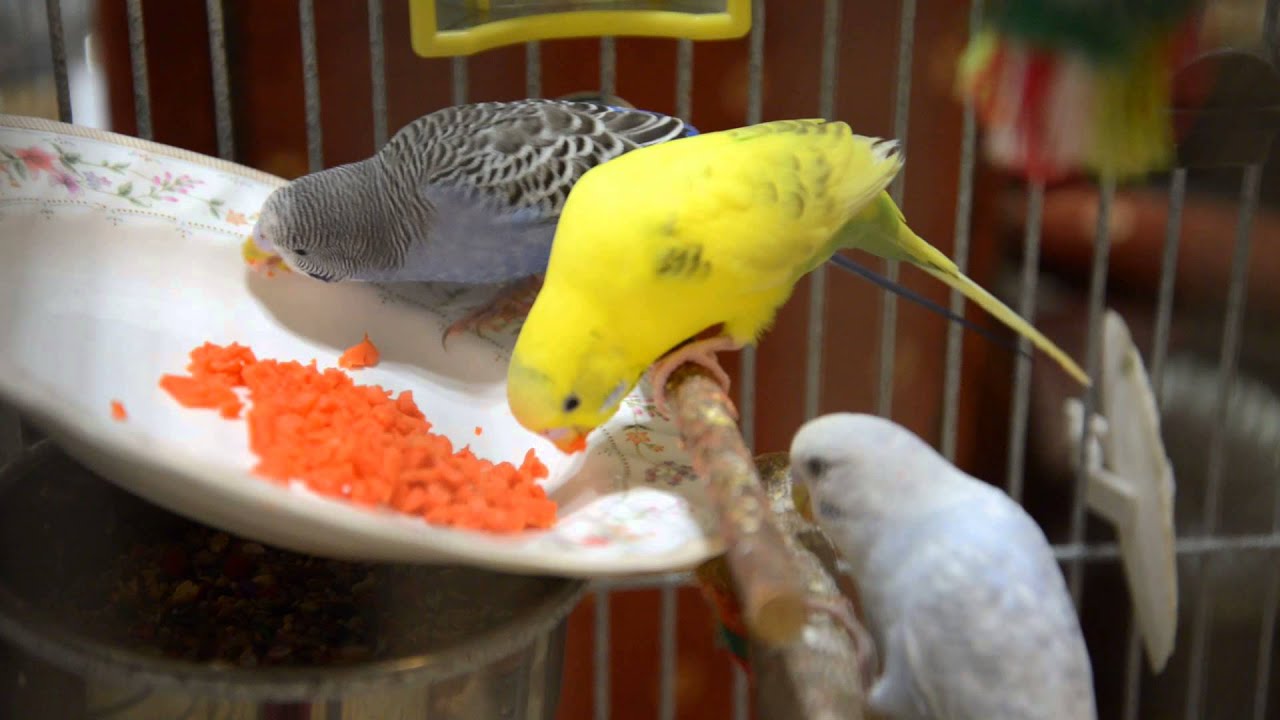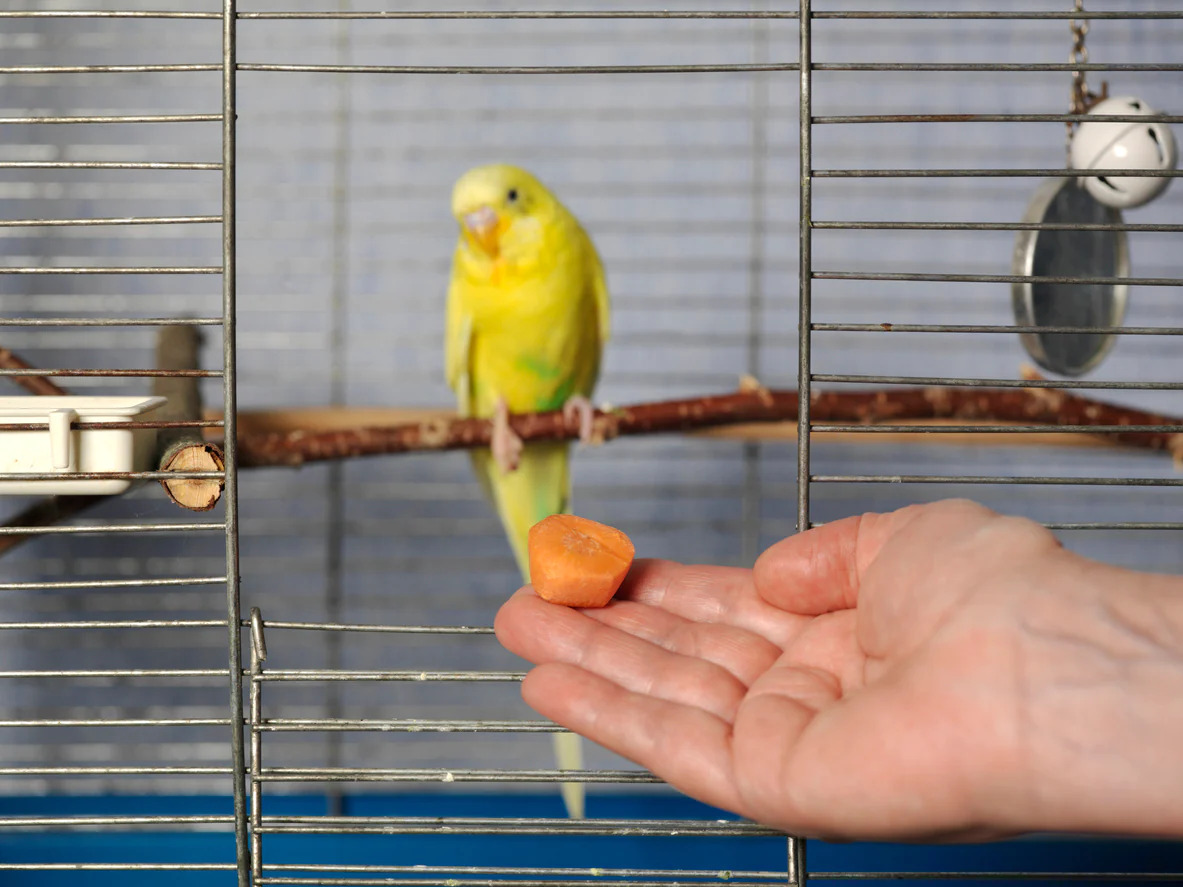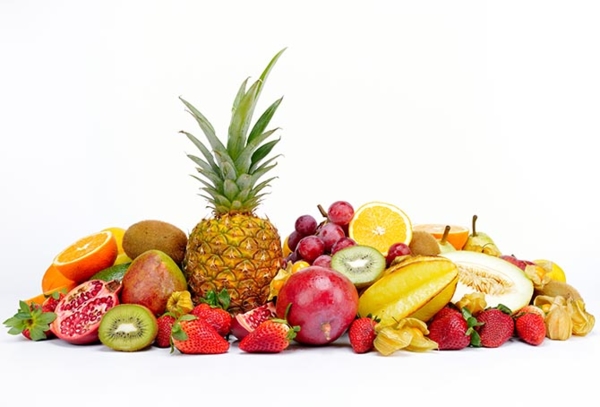Can Birds Eat Carrots? A Secret Superfood For The Delight Of Your Feathered Friends
Can Birds Eat Carrots? Are carrots a healthy addition to the diet of your bird? In this in-depth essay on the subject, learn the truth. Discover the benefits of carrots for birds' diets, how to feed them, and the significance of portion control.
Author:Velma BattleReviewer:Michael RachalOct 05, 20231.8K Shares201.3K Views
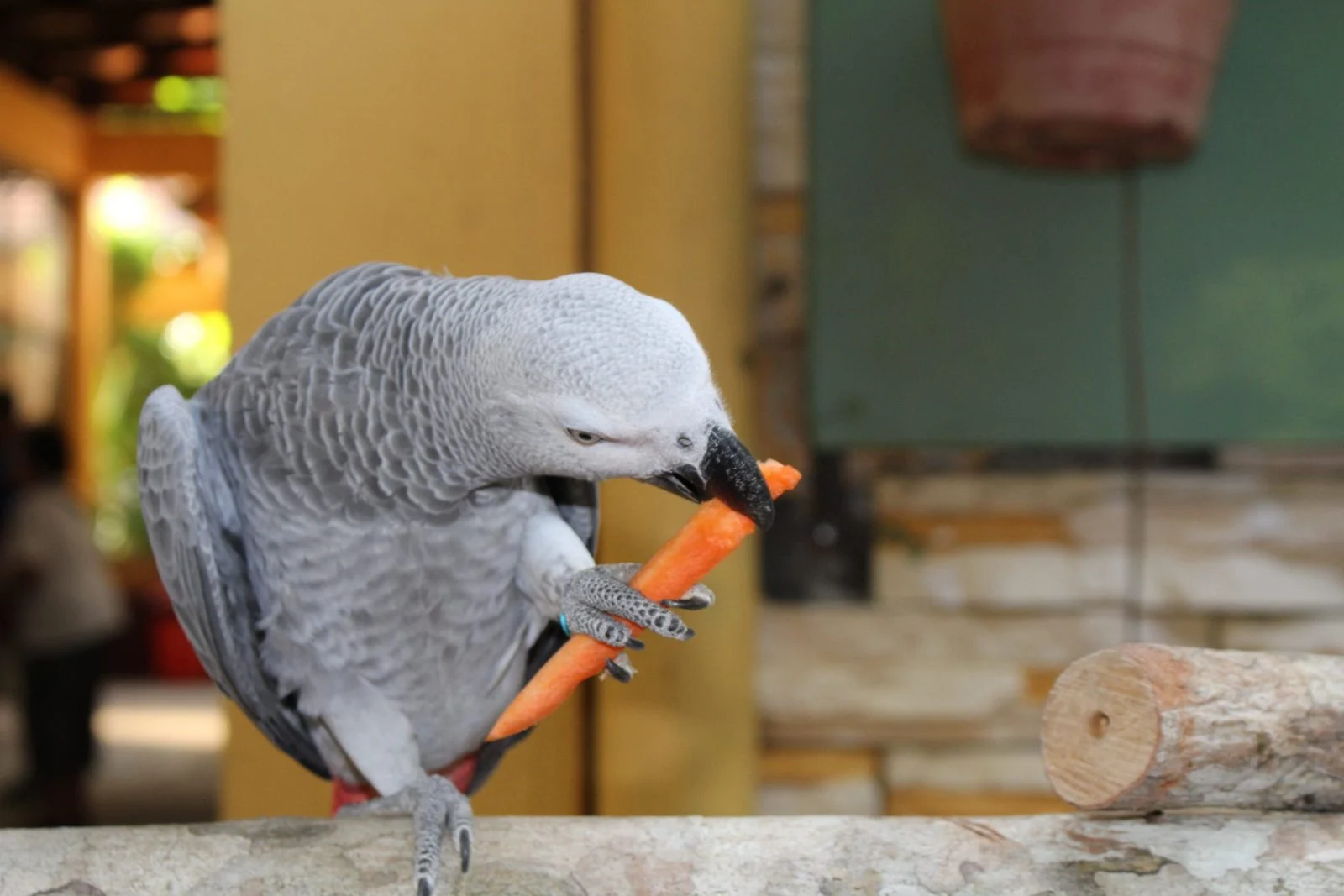
Can Birds Eat Carrots?Are carrots a healthy addition to the diet of your bird? In this in-depth essay on the subject, learn the truth. Discover the benefits of carrots for birds' diets, how to feed them, and the significance of portion control.
Carrots may be eaten by birds. For many different species of birds, such as parakeets, cockatiels, and conures, carrots offer a wholesome and safe meal. Carrots should, however, only be served in moderation and shouldn't make up the majority of a bird's diet.
What Vegetables Can Birds Eat?
In addition to bell peppers, carrots, sweet potatoes, squash, mango, papaya, and cantaloupe, the bulk of these fruits and vegetables are highly concentrated in vitamin A, an essential ingredient in the diet of birds. They are also mostly red and orange in color. A range of fruits and vegetables that are high in vitamins, minerals, and carbs are beneficial to birds. For amusement and enrichment, birds like eating.
Fresh, cleaned fruit and vegetables should be provided to birds every day, along with species-specific, nutritionally balanced pellets that are catered to the requirements of each unique bird. Because citrus fruits are acidic, only eat them seldom and in tiny amounts. Strawberries, raspberries, blueberries, and other berries all contain significant amounts of antioxidants. The same is true for frozen and thawed veggies, however fresh vegetables are less nutrient-dense than those that have been frozen and thawed. It is advisable to prepare veggies in advance and serve them immediately.
Nutritional Value Of Carrots For Birds
- Vitamin A -Carrots are exceptionally rich in vitamin A, primarily in the form of beta-carotene. Vitamin A is essential for birds as it plays a crucial role in maintaining their vision. Birds with good eyesight are better equipped for foraging and avoiding predators.
- Vitamin C -Carrots also contain vitamin C, which acts as an antioxidant. This vitamin can help boost a bird's immune system, helping them fight off infections and diseases.
- Fiber -Carrots are a good source of dietary fiber. Fiber aids in digestion and can help regulate a bird's digestive system. This can be especially beneficial for birds that consume a variety of foods in the wild.
- Hydration -Carrots have a high water content, which can help birds stay hydrated. Adequate hydration is essential for their overall health, particularly during hot weather or in regions where water sources might be limited.
- Minerals -Carrots contain various minerals, including potassium and manganese. These minerals play roles in maintaining a bird's overall health and bodily functions.
- Low Fat -Carrots are naturally low in fat, which can be advantageous for birds. A diet too high in fat can lead to obesity, which is detrimental to their health.
- Energy -Carrots provide carbohydrates, which are a source of energy for birds. While seeds and insects are the primary sources of energy for most bird species, the additional carbohydrates from carrots can help provide an energy boost.
How To Prepare Carrots For Birds
Preparing carrots for birds involves ensuring that they are safe, nutritious, and easily manageable for our feathered friends. Here's a step-by-step guide on how to prepare carrots for birds:
Choose Fresh Carrots
Start by selecting fresh, crisp carrots. Birds are more likely to be attracted to and eat fresh vegetables, just like humans.
Wash Thoroughly
Before preparing carrots for birds, wash them thoroughly under running water to remove any dirt or contaminants. Ensure they are clean and free of pesticides or chemicals if you are using garden-fresh carrots.
Cut Into Bird-Friendly Portions
Birds have small beaks, so it's essential to cut carrots into manageable pieces. Here are some options:
- Thin slices -Slice the carrot into thin, coin-like pieces.
- Grated carrots -Grate the carrots to create small, easily consumable shreds.
- Small sticks -Cut carrots into thin, short sticks or matchsticks.
- Tiny cubes -Dice the carrots into small, bite-sized cubes.
Avoid Seasonings And Additives
Birds have delicate taste buds and can be sensitive to seasonings, salt, spices, and additives. Do not add any of these to the carrots you offer to birds.
Offer In Moderation
While carrots can be a healthy addition to a bird's diet, they should be considered a treat or supplement rather than the primary food source. Birds require a balanced diet, which typically includes seeds, insects, and fruits. Use carrots to add variety to their diet.
Place In A Feeder Or On A Feeding Platform
You can offer prepared carrots to birds in a variety of ways:
- Place them on a bird feeder designed for fruits and vegetables.
- Scatter them on a feeding platform or a clean, flat surface.
- Attach them to a carrot holder, specifically designed for birds.
Observe And Refresh
Keep an eye on the carrots you've provided. Birds may not consume them immediately, so be patient. Replace any uneaten carrots with fresh ones regularly to ensure they receive the best nutrition.
Monitor Bird Activity
Observe the bird activity around the carrot offerings. Different bird species may take some time to discover and try the new treat. Enjoy watching your feathered friends indulge in this wholesome snack.
By following these steps, you can prepare carrots for birds in a way that is safe, appealing, and nutritious. Remember that variety is key in providing a well-rounded diet for birds, and carrots can be a delightful addition to your birdwatching experience.
Can Birds Eat Carrots?
Bird enthusiasts often wonder whether their feathered friends can enjoy the benefits of carrots. The answer is a resounding yes! Birds can indeed eat carrots, and doing so can provide several advantages to their well-being. Carrots are rich in essential nutrients such as vitamin A, which is vital for maintaining birds' vision, and vitamin C, which can boost their immune system.
Additionally, the high water content in carrots helps keep birds hydrated, particularly during hot weather or in regions with limited water sources. While carrots should be offered in moderation as a supplement to their primary diet of seeds, insects, and fruits, they can be a delightful addition to a bird feeder, attracting various species and diversifying the birdwatching experience.
When considering carrots as a treat for birds, it's important to prepare them correctly. Birds have small beaks, so cutting carrots into small, manageable pieces is crucial to make them easy to consume. Freshness is also key, as birds are more likely to be attracted to and eat fresh vegetables.
Additionally, it's essential to avoid adding any seasonings or additives to the carrots, as birds have sensitive taste buds and may be sensitive to such ingredients. By offering carrots in a safe and bird-friendly manner, bird enthusiasts can provide a nutritious and enjoyable snack for their avian visitors while contributing to their overall health.
Bird Species That Enjoy Carrots
Can Parakeets Eat Carrots?
Parakeets, also known as budgerigars, can indeed enjoy the nutritional benefits of carrots as part of their diet. Carrots are a rich source of essential nutrients, especially vitamin A, which plays a critical role in maintaining parakeets' eye health and overall immune system function. Offering carrots in small, bite-sized pieces ensures safe and easy consumption, as parakeets have small beaks.
Freshness is key when providing carrots to these vibrant little birds, as they are more likely to be enticed by crisp and clean vegetables. While carrots can be a valuable addition to their diet, it's important to remember that moderation is key. Parakeets require a balanced diet that incorporates a variety of foods, including commercial parakeet pellets, fresh vegetables, fruits, and seeds.
Diversifying their diet with carrots can be a delightful way to offer parakeets a range of nutrients while encouraging their natural foraging behavior. Keep a close eye on your parakeets' response to carrots, as individual preferences can vary. Not all parakeets may immediately take to this new treat, but over time, they may develop a liking for it. By providing carrots as part of a varied and nutritious diet, you can contribute to the overall health and well-being of your feathered companions.
Can Parrots Eat Carrots?
You may have opened your refrigerator as a parrot owner and pondered whether or not to give your pet parrot a carrot. After all, carrots are nutritious, visually appealing, and simple to prepare. The good news is that carrots are just as healthy for your pet parrot as they are for you, so you can give it some!
It's crucial to note that although your parrot may safely and healthily eat carrots, they shouldn't make up the majority of their diet. Additionally, because no vegetable has all the nutrients a parrot needs to be healthy, carrots shouldn't be the only food your bird consumes.
In addition to his usual parrot diet, it's ideal to give your bird a variety of vegetables and fruits to make sure he gets all the vitamins and minerals he need. Furthermore, it makes absolutely no difference whether you give your parrot fresh or frozen carrots.
Can Budgies Eat Carrots?
Carrots are one of those vegetables that everyone in the parrot family, including budgies, likes. In terms of nutrition, these tasty, crunchy snacks have a lot to offer your birds. Carrots are safe for birds of all ages to consume. Make sure to give your dogs these treats in moderation if you don't want them to experience the negative effects of excessive carrot eating.
What Fruits Can Birds Eat?
Birds can enjoy a variety of fruits as part of their diet, providing essential nutrients and adding diversity to their meals. Here's a list of some fruits that are safe for birds to eat:
Fruits
- Apples (remove seeds)
- Bananas
- Berries (strawberries, blueberries, raspberries)
- Cherries (remove pits)
- Grapes (cut in halves)
- Oranges (in moderation)
- Kiwi
- Melons (cantaloupe, watermelon)
- Pears (remove seeds)
- Plums (remove pits)
Tips
When offering fruits and vegetables to birds, it's important to keep a few key considerations in mind to ensure their safety and well-being:
- Wash Thoroughly -Wash the fruits and vegetables thoroughly to remove any pesticides, chemicals, or contaminants. Use clean, fresh produce.
- Cut into Manageable Pieces -Slice or chop the fruits and vegetables into small, bird-friendly pieces. Birds have small beaks and will have an easier time handling smaller portions.
- Freshness Matters -Birds are more likely to eat fresh, crisp produce. Ensure that the fruits and vegetables you offer are in good condition and free from spoilage.
- Avoid Additives -Do not add any seasonings, salt, spices, or seasonings to the fruits and vegetables you provide. Birds have sensitive taste buds and may be harmed by these additives.
- Supplement, Don't Replace - Fruits and vegetables should be offered as supplements to a bird's primary diet, not as a replacement. Most birds rely on a mix of seeds, insects, and other natural foods.
- Variety is Key -Offer a variety of fruits and vegetables to provide a wide range of nutrients and cater to different bird species' preferences.
- Monitor Bird Activity -Observe the birds' response to the fruits and vegetables. Not all birds may immediately take to these foods, so be patient.
- Clean Up Uneaten Portions -Remove any uneaten fruits and vegetables promptly to maintain cleanliness in the feeding area and prevent spoilage.
FAQs
Can Birds Eat Raw Carrots?
Smaller birds may fare well with tiny carrots or shredded carrots since they often prefer more "bite-sized" portions. Carrots are best when consumed fresh and uncooked, so make sure to only give them to your bird in their original condition. The satisfying crunch of the carrot also gives pet birds the required jaw training they need.
Can Parrots Digest Carrots?
Vegetables are another crucial source of nutrition for your parrot, along with fruits. Asparagus, beets, bell peppers, broccoli, butternut, carrots, corn on the cob, collard greens, hot peppers, spinach, sweet potatoes, tomatoes, and zucchini are examples of safe vegetables.
Can Birds Eat Rice?
Technically, birds can eat both raw and cooked rice. Remember that only uncooked rice would be available to your bird's ancestors in the wild. When rice is offered in their meals, most birds probably won't have strong views about raw vs cooked.
Is Carrot Good For Pigeons?
Your bird should ideally get a daily supply of a varied assortment of fresh vegetables that have been cut, such as corn, peas, spinach, silverbeet, kale, green beans, parsley, broccoli, carrots, sprouts, etc. Fruit may be served in modest portions, but since it contains a lot of sugar, its use must be restricted.
Final Words
In conclusion, birds can indeed eat carrots, and offering them this nutritious vegetable can be a delightful and beneficial addition to their diet. Carrots provide essential nutrients such as vitamin A, vitamin C, fiber, and hydration due to their high water content. While they may not be a staple in most birds' natural diets, carrots can contribute to their overall health and well-being when prepared and offered correctly.
To ensure the safety and appeal of carrots to birds, it's crucial to cut them into small, bird-friendly pieces, maintain freshness, and avoid adding seasonings or additives. Carrots should complement, not replace, a bird's primary food sources, such as seeds, insects, and fruits. By offering carrots in moderation and as part of a balanced diet, you can provide a nutritious supplement that enhances the birdwatching experience and contributes to the overall health of your feathered friends. Don't forget to provide a variety of vegetables and fruits to keep their diet varied and nutritious.

Velma Battle
Author
Travelling Expert

Michael Rachal
Reviewer
Travelling Expert
Latest Articles
Popular Articles
